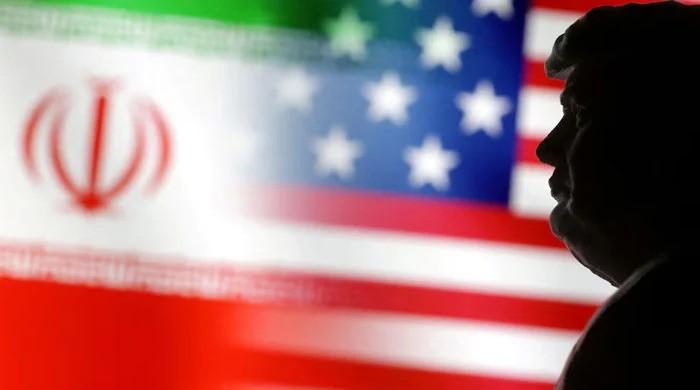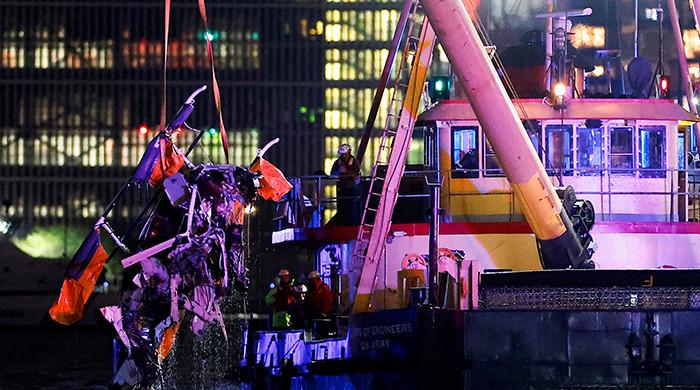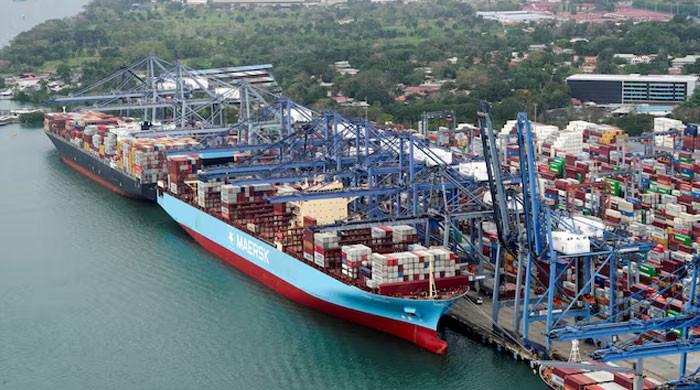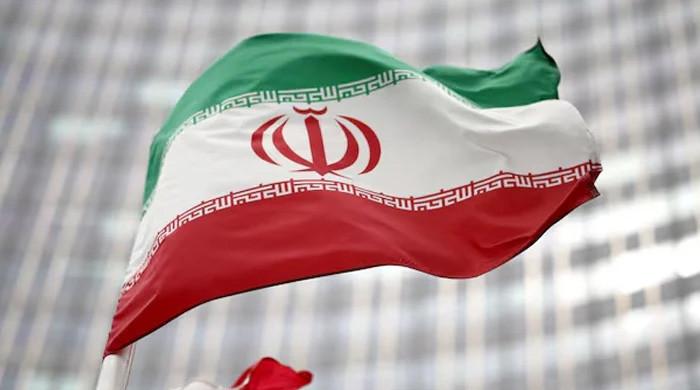Joe Biden blames Afghan leadership for Taliban takeover
"We gave them every chance to determine their own future. We could not provide them the will to fight for that future," says Biden
August 17, 2021
- US President Joe Biden breaks silence to defend Afghan evacuation.
- Blames blames Afghan army's unwillingness to fight against Taliban.
- "Our mission in Afghanistan was never supposed to have been nation-building," the US president says in a televised address.
WASHINGTON: President Joe Biden broke days of silence Monday on the chaotic American pullout from Afghanistan, doubling down on his decision as he fired scorching criticism at the country’s former Western-backed leadership for failing to resist the Taliban.
"I stand squarely behind my decision. After 20 years, I’ve learned the hard way that there was never a good time to withdraw US forces," he said in a televised address from the White House.
As images of chaos and desperation beamed in from Kabul, where American soldiers were trying to mount an evacuation from the airport while Taliban fighters flooded the city, Biden said: "The buck stops with me."
Brushing off criticism that the evacuation is a debacle, he said the priority is to stop a war that had expanded far beyond its initially modest goals of punishing the Taliban for links to Al-Qaeda after 9/11.
"Our mission in Afghanistan was never supposed to have been nation-building," he said, vowing that despite the departure of US troops anti-terrorism operations would continue.
Biden said "thousands" of US citizens and Afghans who had worked with American forces are to be evacuated over the coming days. He threatened a "devastating" military response if the Taliban launch attacks in the meantime.
Underlining his show of confidence, Biden left the White House soon after the speech to return to his weekend retreat at Camp David. He had flown into Washington just hours earlier to give the speech after coming under pressure to address the nation.
- Blaming the Afghans -
While Biden said he took responsibility for the fate of the US mission, he lashed out at the former Afghan government and military commanders who were put in place, organized and supported by Washington over the last 20 years.
Instead of standing up to the advancing Taliban -- a highly experienced guerrilla force but more lightly armed than the US-supplied Afghan army -- the government fled.
"We gave them every chance to determine their own future. We could not provide them the will to fight for that future," Biden said.
Partly acknowledging the surprising suddenness of the final Taliban assault, Biden said "this did unfold more quickly than we had anticipated."
But rather than dwell on the shocking scenes of Afghans mobbing the airport or respond to criticism that the White House was unprepared, Biden hammered home his wider message that ending the war is what matters.
"Our true strategic competitors, China and Russia, would love nothing more than the United States to continue to funnel billions of dollars in resources and attention into stabilizing Afghanistan indefinitely," he said.
Biden said he was "left again to ask of those who argue that we should stay: how many more generations of America’s daughters and sons would you have me send to fight Afghans -- Afghanistan’s civil war -- when Afghan troops will not?"
- Political damage -
Biden had been on a political roll until this last week.
Defying those who said Washington had become too dysfunctional for bipartisan dealmaking, Biden was celebrating the passage by the evenly divided Senate of his $1.2 trillion infrastructure bill. His Democrats were starting to work on a second, mind-bogglingly ambitious $3.5 trillion bill.
And it was only a few weeks ago that Biden was congratulating Americans for their Covid vaccination rates -- a seeming victory over the coronavirus that the emerging Delta variant has now put in peril.
Like the pandemic, Afghanistan was a crisis that Biden inherited.
The US public has long lost interest in the fighting there and Trump tapped into powerful isolationist sentiment with a drive to extricate the country from "stupid" post-9/11 wars.
Unlike on most other matters, Biden agreed with his Republican predecessor.
In fact, Biden’s pullout is based almost entirely on a plan set in motion by Trump himself, who ordered negotiations with the Taliban and, if reelected, had been teeing up an even earlier exit.
But Biden now owns the fallout and what he had hoped would be a positive, if somber, occasion has become a political nightmare, with critics raising the Kabul mess as a sign of failed leadership.
"Contrary to his claims, our choice was not between a hasty and ill-prepared retreat or staying forever," Senator Mitt Romney said.
Another Republican senator, Ben Sasse, was harsher, calling Biden’s speech "shameful" and the evacuation a show of "weakness and betrayal."











